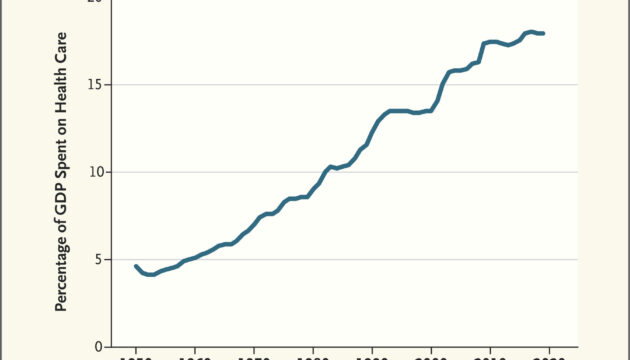
Healthcare Reform
Featured Topics
Lead story
Other featured articles
-
Improving Access to Medigap When Beneficiaries Leave Medicare Advantage
For beneficiaries switching from Medicare Advantage, state regulations generally permit Medigap plans to deny coverage, impose waiting periods, or charge higher premiums.
Posted in -
Risk Preferences Over Health: Empirical Estimates and Implications for Medical Decision-Making
Individuals are risk-seeking at low levels of health and are most risk-averse at perfect health
Posted in -
A COVID Takeaway for California: Data Needs to Drive Health Policy
A key lesson from the pandemic is that the state needs to get a better handle on economic trade-offs as it implements preventive measures, especially vaccines.
Posted in -
Projected Health Benefits and Health Care Savings from the United States National Hepatitis C Elimination Initiative
The national hepatitis C elimination initiative would substantially reduce HCV-related morbidity and mortality and would reduce healthcare spending at 10 years and beyond.
Posted in
About this section
Healthcare reform should hinge on improving value, reducing waste, and bettering the health outcomes of patients. The Schaeffer Center is a pioneer in posing solutions to enhance the value of healthcare services and expand their reach.
Our Work In Healthcare Reform
-
Addressing Value Defects from Wasteful Services through Health Technology Assessment
All parts of the health care delivery system—ranging from biotechnologies to provider-led health care services—should be held equally accountable for providing valuable services to patients.
Categorized in -
Multi-Year Medicare Physician Fee Freeze Threatens Access: Pair Relief With Reforms
With fees frozen, high inflation threatens access to care and has other consequences.
Categorized in -
Schaeffer White Paper Highlights Failures in Generic Drug Market That Cost Patients
A new USC Schaeffer Center paper highlights tactics used by intermediaries in the pharmaceutical distribution system, including pharmacy benefit managers (PBMs) and insurers, that are costing patients, employers and the government billions for what should be inexpensive medicines.
Categorized in -
Patients Deserve Immediate Access to FDA-Approved Innovations — Not Bureaucratic Restrictions
Nonresident Senior Fellow Joe Grogan argues that the FDA approval process is slowing down drug innovation.
Categorized in -
Value Defects In The Health Services Sector
As of 2021, US health care expenditures exceed $3.8 trillion. It’s no secret that health care is nearly as wasteful in spending on value defects—behaviors that needlessly reduce quality, negatively impact the patient experience, or add to total costs of care—as it is in delivering clinical benefits.
Categorized in -
Stabilizing Health Care’s Share of the GDP
Since 1960, health care’s share of the GDP has risen by an average of 2.2 percentage points per decade, as compared with an average increase of 1.1 percentage points per decade in 15 other high-income countries since the early 1970s.
Categorized in









